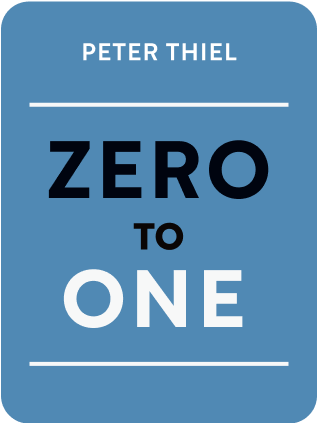

This article is an excerpt from the Shortform summary of "Zero To One" by Peter Thiel. Shortform has the world's best summaries of books you should be reading.
Like this article? Sign up for a free trial here .
What is a viral marketing strategy, and do you need one? Can viral marketing really help your startup?
A viral marketing strategy can be incredibly valuable in launching and building your startup. Having a viral marketing strategy is one of the major marketing strategies for online marketing. Discover how viral marketing can work for you.
Viral Marketing and Your Sales Strategy
Many Silicon Valley entrepreneurs underestimate the importance of distribution, which encompasses whatever it takes to sell your product (advertising, sales, marketing, and distribution channels). But understanding distribution and having a plan for it is critical to a company’s success—it should be part of designing your product.
We often overlook the importance of distribution because society in general looks down on salespeople and advertising as dishonest and manipulative. Silicon Valley entrepreneurs take this a step further—because of a bias toward building rather than selling, they often believe their product is so superior it should sell itself: if they build it, customers will come.
But customers won’t buy your product automatically; you have to sell it, which is more challenging than many entrepreneurs and engineers realize. You can address this with a marketing and sales strategy, specifically viral marketing.
The Hidden Art of Selling
Silicon Valley “nerds” should care about advertising because it works—or it wouldn’t be a $150 billion industry that employs more than 600,000 people. One of the biggest parts of the industry is viral marketing.
But sales works differently than many people think. They think they’re not influenced by pitches because they don’t run out and buy the advertised items. But advertising’s intent isn’t to get you to buy a product right away, it’s to leave an impression with you that will drive sales later.
The sales process is often subtle—selling is a hidden art that secretly drives the economy.
All salespeople are actors; like actors, their priority is persuasion, not transparency. We react negatively to inept salespeople (“used-car salesman” is a slur), but the best salespeople are masters who sell without our realizing it.
For example, Mark Twain’s character Tom Sawyer persuaded his friends to whitewash a fence for him. That took talent, but his masterstroke was convincing them to pay him for the privilege of doing so. They never caught on.
Sales still works best when hidden. Sales is never mentioned in anyone’s job title—for instance, advertising salespeople are “account executives;” fundraisers trying to sell you on a cause work in “development,” and those who sell companies are “investment bankers.” Yet sales ability in each position separates superstars from average performers.
While engineers like to assert that a great product will sell itself, there’s another business maxim that the best product doesn’t always come out on top. If you’ve created a new product but not an effective way to sell it, you have a bad business regardless of your product’s quality. Think about how a viral marketing strategy can make that happen.
Forming a Viral Marketing Strategy
Viral marketing is the cheapest and fastest way to sell a product—by using it, people encourage additional users to participate. Facebook and PayPal both grew quickly through a viral marketing strategy. Every time someone shared with a friend or made a payment they pulled more people into the network.
A viral marketing strategy or distribution can trigger exponential growth. The effect should be seamless and fast. YouTube videos or internet memes can be seen by millions in a very short time: In just seconds, people see a cute post, feel a glow, and share it.
PayPal started with only 24 users (employees). But the company achieved extraordinary growth through a form of a viral marketing strategy by paying people to sign up and refer their friends. In a few months, PayPal had hundreds of thousands of users. Because they charged customers a transaction fee, revenue exceeded their customer acquisition cost.
The company that’s first to dominate a key market slice with viral capability will ultimately dominate the entire market (be the last mover that no one else can match), if it expands judiciously. PayPal first dominated a key segment—”power sellers.” Once the company had corralled these intense users and began expanding, no imitators could catch up.
Selling Yourself
Besides selling your product, you need to sell recruits, employees, and investors on the value of your company.
Some entrepreneurs fall for the human relations “lie” that their company is so good people will be clamoring to work for it (this is like the “great products sell themselves” distribution lie).
The funding version of this lie is that investors will be knocking down your doors to invest.
However, great attention and a viral campaign don’t come without a public relations strategy for selling your company to the media. While entrepreneurs may be wary of the media, they shouldn’t try to ignore it. Media exposure can help you attract customers as well as employees and investors. Any good job candidate will research your company—what comes up in a Google search should be part of your overall public relations plan.
A Startup Is a Cult—and That’s OK
Most people have a negative impression of cults, partly because they look crazy and some of the highest-profile cults in U.S. history were homicidal (Jim Jones, Charles Manson). But a culture of extreme dedication can be an asset to a startup. How does this work for a viral marketing strategy?
In the most intensely committed organizations, members associate only with other members and ignore their families and the outside world. In return, they get a strong feeling of belonging and of being privy to some kind of secret. At the other extreme is the detached, “professional” attitude found in many consulting firms. These firms lack a unique mission and their employees drop in and out of client companies with no sense of commitment or connection. An intense culture can help things like viral marketing campaigns succeed, since you’ll have lots of opportunities to generate ideas and execute viral campaigns.
Every company’s culture falls somewhere between these extremes. The best startups are “slightly less extreme cults.” The difference between a startup and an unhealthy cult is that the latter is usually zealously wrong about something. People in a committed startup culture are zealously right about a secret that outsiders have missed. If your company doesn’t make sense to conventional professionals, it’s often a sign of strength. Remember this when you’re working on a viral campaign. Your people are your best resource for what will go viral.
A viral marketing strategy can be a hugely effective way to launch your company or create buzz. Consider it in your marketing plans.

———End of Preview———
Like what you just read? Read the rest of the world's best summary of Peter Thiel's "Zero To One" at Shortform .
Here's what you'll find in our full Zero To One summary :
- Why some companies genuinely move the world forward when most don't
- How to build a company that becomes a monopoly (and why monopolies aren't bad)
- Silicon Valley secrets to selling products and building rockstar teams






